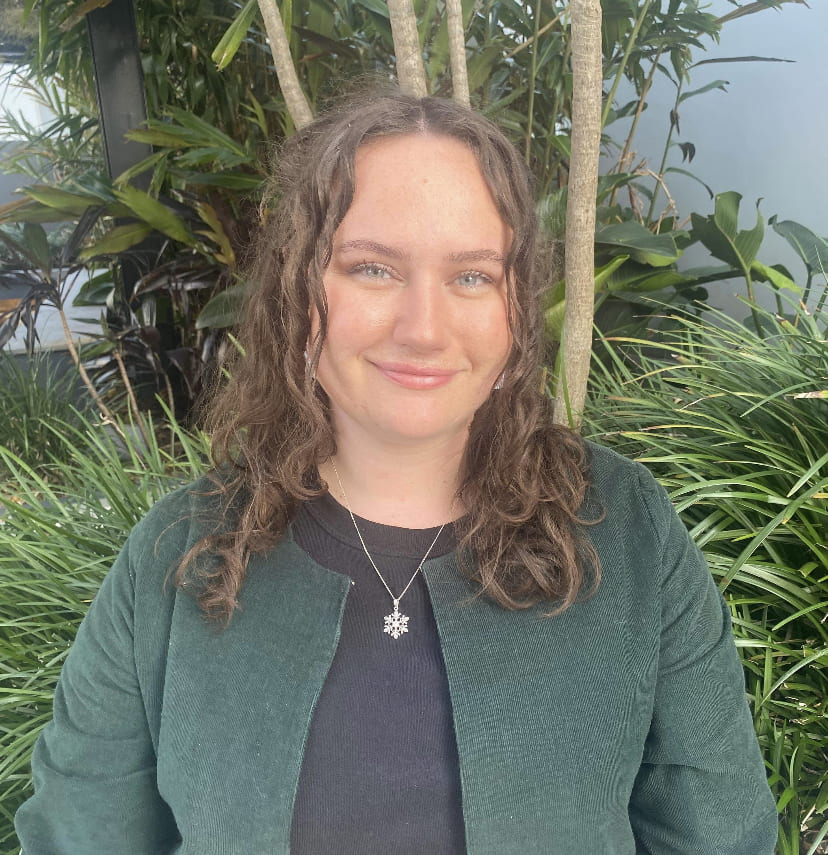Even from the lush surrounds of England, the drought and bushfires consuming NSW in 2019 kept creeping into Niamh Wood’s creative writing.
Now, she’s exploring the impacts and everyday realities of climate change in a collection of fairy tale adaptations for her PhD in Writing at UNE.
“The drought entered my writing at the time I did a summer writing course at Cambridge,” Niamh says. “Every day we did a writing exercise and wrote a little story that we then workshopped. I had no idea, but I got feedback that the drought entered my writing almost every time. There’d be some mention of water or some existential dread or concern about the dryness or smoke.
“I felt this really weird concern for what was happening back home, and then I came back and it was the big bushfire season. So I think it just naturally popped up in my writing and thinking.”
Always interested in the process of story adaptation, the idea of adapting a collection of fairy tales took shape, as a way of exploring the everyday realities and lived experience of climate change.
“Fairy tales generally react and respond to a current issue, such as beware of strangers on the street or beware of going into the forest and getting lost, or they reflect a fear like starvation and famine.
“Even when they were oral tales, they changed with every storyteller and they changed for who the audience was and what they were concerned about. Then to be written down, that’s another huge shift in adaptation. The Grimm Brothers, Charles Perrault and Hans Christian Anderson adapted the stories again with their own ideas about the world.
My approach is to look at climate change in very ordinary everyday situations and how it disrupts habit and changes how we understand the world to be.
“I wanted my stories to still reflect a current issue and continue that vision. And I think that climate change is just the big issue at the moment that’s hard to ignore, and is linked with a lot of social and political issues.”
Niamh will create a ‘short story cycle’ as part of her creative writing thesis – a collection of retold fairy tales following a chronological order and connected by the theme of water and a river. But they won’t be built on big disasters and post-apocalyptic events.
“My approach is to look at climate change in very ordinary everyday situations and how it disrupts habit and changes how we understand the world to be. For most people, it’s little things like worrying about conserving water during the drought, or a general fear of bushfires in summer. It appears in small ways, like lettuce costing $10, due to floods. It’s those things I will focus on in my stories.”
Some of her chosen stories to adapt are the more cryptic and bizarre The Three Snake-Leaves and The Story of the Youth Who Went Forth to Learn What Fear Was, along with some better known stories, like Little Red Riding Hood, all by the Brothers Grimm.
I didn’t want to just update the moral to make it more progressive, because I didn’t want to imply that there is a simple answer to climate change.
But as well as being set in a realistic, everyday scenario and having “just a hint of the magical”, Niamh says an important point of difference with her stories will be the lack of a moral.
“The moral of a fairy story usually condemns the behaviour of women and makes sure they are going to act better in future,” she says. “I didn’t want to just update the moral to make it more progressive, because I didn’t want to imply that there is a simple answer to climate change. It’s complicated, and we need to be looking for new ways forward,” she says.
“So there’ll be no clean endings, instead it’s about a bittersweet process of moving forward.”
While delving into some of the lesser known fairy tales and the world of eco-fiction has been a new experience for Niamh, it is a process she says she is thoroughly enjoying.
“I came to my supervisors with the idea of wanting to write something and wanting to adapt something, and really not much else. My supervisors, Dr Ariella Van Luyn and Dr Jennifer Hamilton, have helped me a lot, and I’m incredibly appreciative of their support.
“It’s nice to be backing up the writing process with a real understanding of where it’s coming from, and continuing a tradition of storytelling and adaptation.
“I’ve already learned a lot, and the stories are coming along. I’m really enjoying writing them and I’m excited to see what happens with the project and where it goes.”



Recent Comments